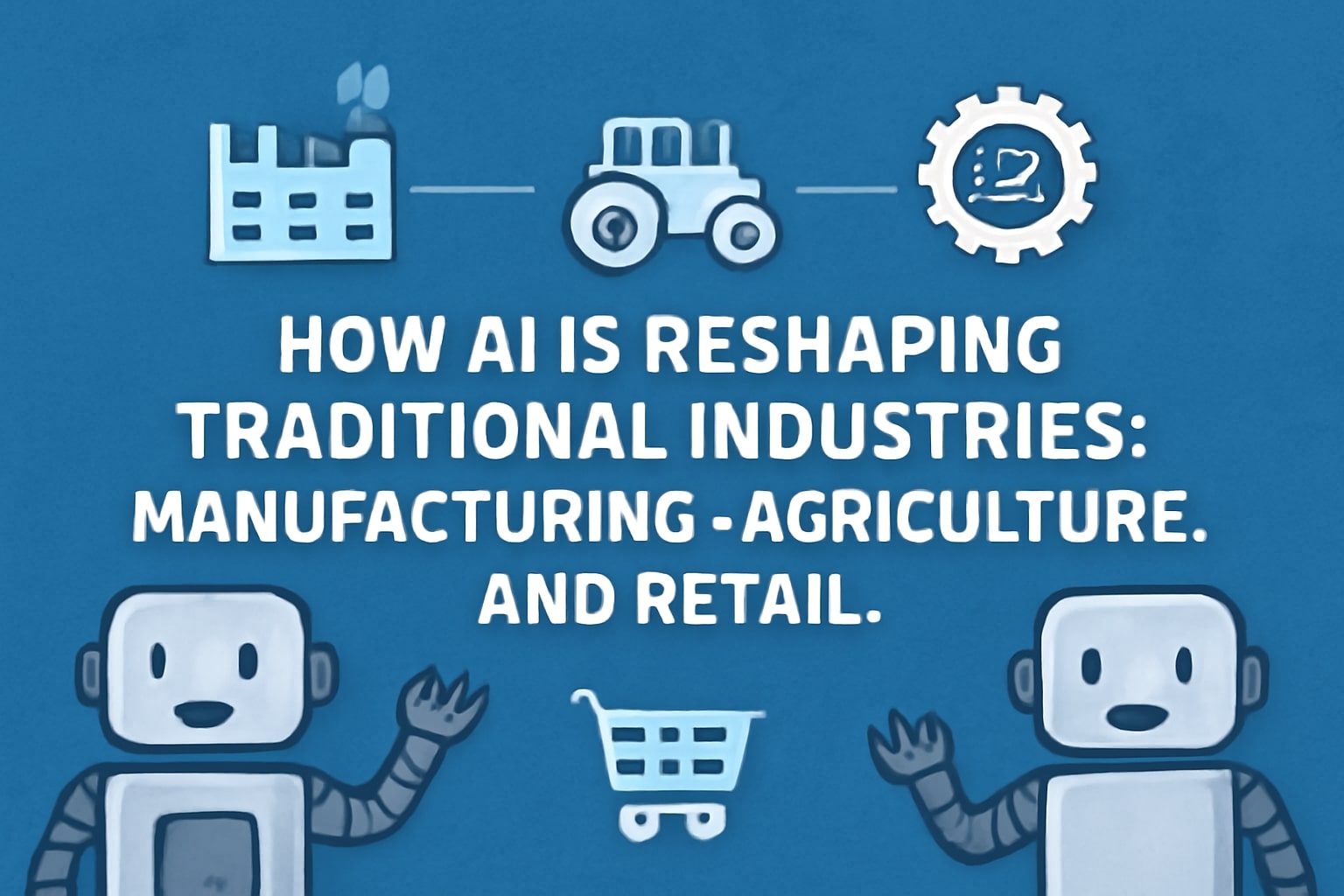While tech companies grab headlines, the most profound transformation is AI in traditional industries. From farms to factories to store aisles, AI is driving a new era of efficiency, sustainability, and productivity. Here’s how AI is reshaping the foundational pillars of the global economy.

1. AI in Manufacturing: The Rise of the Smart Factory
Manufacturing is undergoing its fourth revolution (“Industry 4.0”), and AI is the central nervous system.
- Predictive Maintenance: AI analyzes sensor data to predict failures before they happen, minimizing downtime.
- Quality Control: AI-powered computer vision inspects products with superhuman accuracy, reducing waste.
- Generative Design: AI generates hundreds of design options, often creating highly efficient, organic shapes.
- Optimized Production Planning: AI schedules runs, manages raw materials, and allocates energy to cut costs.
Learn more about AI in manufacturing.
2. AI in Agriculture: Precision Farming for a Hungry Planet
AI in agriculture helps farmers do more with less, tackling the dual challenges of population growth and climate change.
- Precision Farming: AI analyzes drone and sensor data to monitor soil, moisture, and crop health, reducing waste.
- Automated Machinery: Autonomous tractors and harvesters guided by AI and GPS boost productivity and address labor shortages.
- Yield Prediction & Disease Detection: AI detects disease early and predicts yields for targeted intervention.
See how AI is transforming agriculture.

3. AI in Retail: The Rebirth of the Physical Store
AI in retail is helping brick-and-mortar stores compete with e-commerce by creating seamless, personalized shopping experiences.
- Cashier-Less Stores: Amazon Go uses AI, computer vision, and sensors for “just walk out” shopping.
- Smart Inventory Management: AI tracks inventory in real-time, triggering restocks automatically.
- Personalized In-Store Experiences: AI-powered apps guide shoppers, deliver promotions, and enable AR experiences.
- Loss Prevention: AI video analytics detect theft and suspicious activity in real-time.
Read more on AI in retail innovation.

The Common Thread: Data and Efficiency in AI Industry Transformation
Across these industries, AI in traditional industries delivers two key advantages:
- Digitizing Physical Processes: IoT devices and sensors turn physical operations into usable data streams.
- Optimizing Efficiency: AI analyzes this data to optimize everything—from how tractors move across a field to how stores prevent theft.
The Impact: Sustainability and Resilience
Beyond efficiency, the impact is profound. AI is enabling:
- Sustainability: Reducing waste of water, fertilizers, energy, and raw materials.
- Resilience: Building supply chains and production systems that adapt to disruptions.
- Human Amplification: Freeing workers from repetitive tasks so they can focus on innovation and supervision.
For traditional industries, AI isn’t about disruption—it’s about survival. Those who embrace it are building a smarter, more resilient, and sustainable future.
Related: How AI is Transforming Business Decision Making
